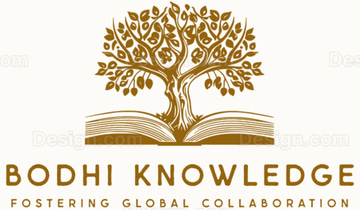Case Study: Facilitating Knowledge Sharing and Collaboration through Conferences
SOCIO-CULTURAL POLLINATIONRESEARCH COLLABORATION
Dr Dinkar Kharat PhD, MBA
11/29/20241 min read


Background
As a seasoned conference organizer, I successfully organized and conveyed national and international conferences, bringing together experts from academia, industry, and government to share knowledge, ideas, and best practices. My objective was to facilitate collaboration, foster innovation, and promote knowledge sharing among stakeholders.
Challenges
1. Coordinating with Diverse Stakeholders: Managing relationships with speakers, delegates, sponsors, and vendors, ensuring their needs were met and expectations exceeded.
2. Ensuring Logistical Efficiency: Overseeing conference logistics, including venue selection, catering, and audiovisual equipment, to ensure a seamless experience for attendees.
3. Curating Relevant and Engaging Content: Developing conference programs that addressed pressing industry challenges, featured renowned speakers, and provided opportunities for networking and collaboration.
Strategy and Implementation
1. Established Conference Objectives and Themes: Defined conference objectives, themes, and topics, ensuring alignment with industry needs and trends.
2. Assembled Organizing Committees and Teams: Constituted organizing committees and teams, comprising experts from academia, industry, and government, to provide guidance and support.
3. Coordinated with Speakers and Delegates: Managed speaker and delegate logistics, including invitations, registrations, and accommodations, to ensure a smooth conference experience.
4. Secured Sponsorships and Partnerships: Fostered relationships with sponsors and partners, securing funding and support to enhance conference quality and impact.
Outcomes and Impact
1. Facilitated Knowledge Sharing and Collaboration: Provided a platform for experts to share knowledge, ideas, and best practices, fostering collaboration and innovation.
2. Promoted Industry Advancement and Growth: Contributed to industry advancement and growth by addressing pressing challenges, showcasing cutting-edge research, and facilitating networking opportunities.
3. Enhanced Conference Brand and Reputation: Established a strong conference brand and reputation, attracting high-profile speakers, delegates, and sponsors.
4. Generated Economic Benefits and Job Creation: Generated economic benefits and job creation opportunities through conference-related activities, such as tourism and hospitality.
Lessons Learned
1. Effective Planning and Organization are Critical: Thorough planning and organization are essential for delivering successful conferences that meet stakeholder expectations.
2. Stakeholder Engagement is Key: Engaging with diverse stakeholders, including speakers, delegates, sponsors, and vendors, is vital for ensuring conference success and impact.
3. Flexibility and Adaptability are Essential: Being flexible and adaptable is crucial for navigating conference-related challenges and uncertainties.
